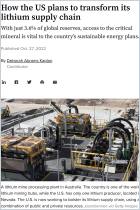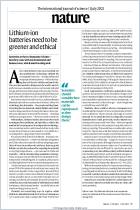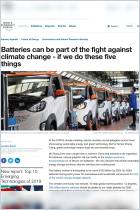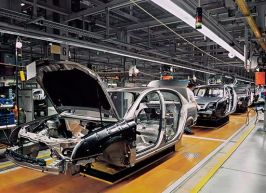Зарегистрируйтесь на getAbstract, чтобы получить доступ к этому краткому изложению.

Зарегистрируйтесь на getAbstract, чтобы получить доступ к этому краткому изложению.
Seth Fletcher
Bottled Lightning
Superbatteries, Electric Cars, and the New Lithium Economy
Hill and Wang, 2011
Что внутри?
If you think electric cars are new, think again.
Recommendation
If you think electric cars are new, think again. Inventor Thomas Edison developed batteries to run cars in 1902. Then a funny thing happened: Gas-powered cars captured the public’s imagination. But gasoline prices, pollution and the politicization of oil sales are causing increased public interest in alternative fuels and people are again becoming interested in electric cars. Popular Science senior editor Seth Fletcher provides a fast-paced story about the battery-driven factors that could reshape the world auto industry, explains how drivers can electrify their cars’ energy needs and suggests how the industrialized world can turn away from oil. getAbstract recommends Fletcher’s timely, well-told overview to those who seek a glimpse into an oil-free future.
Summary
About the Author
Seth Fletcher is a senior editor at Popular Science magazine.


















Comment on this summary
Thank you for your question. This summary and many other audio summaries do not match the written text because our audios summaries originally were not designed that way. This summary is one of the older summaries in our library. We added it in 2012.
Thank you for your question. This summary and many other audio summaries do not match the written text because our audios summaries originally were not designed that way. This summary is one of the older summaries in our library. We added it in 2012.